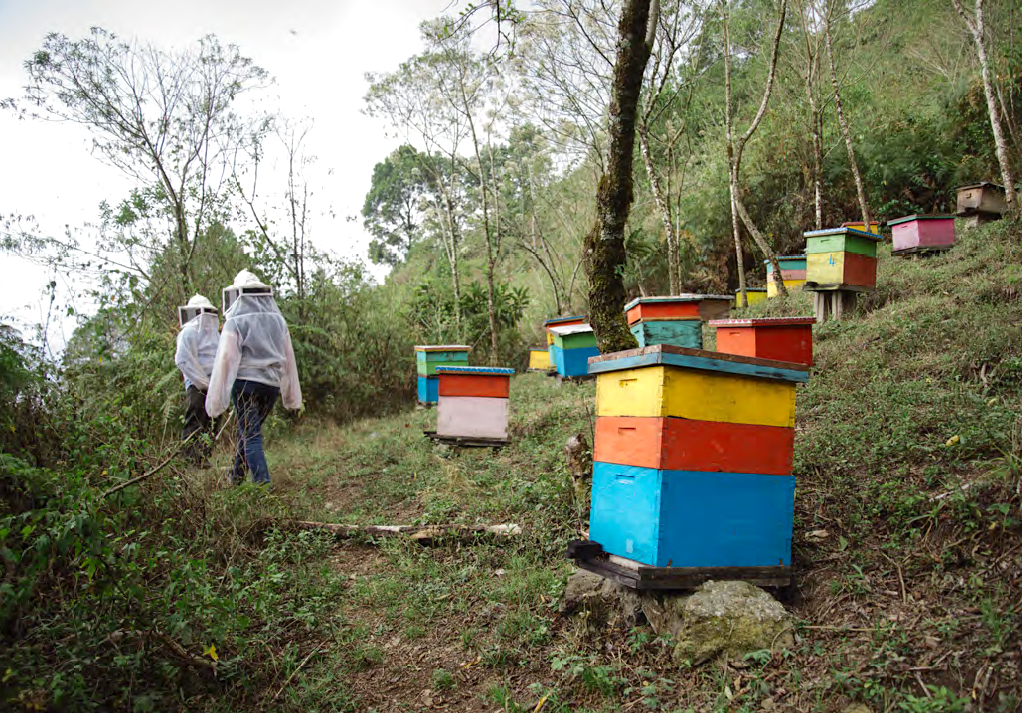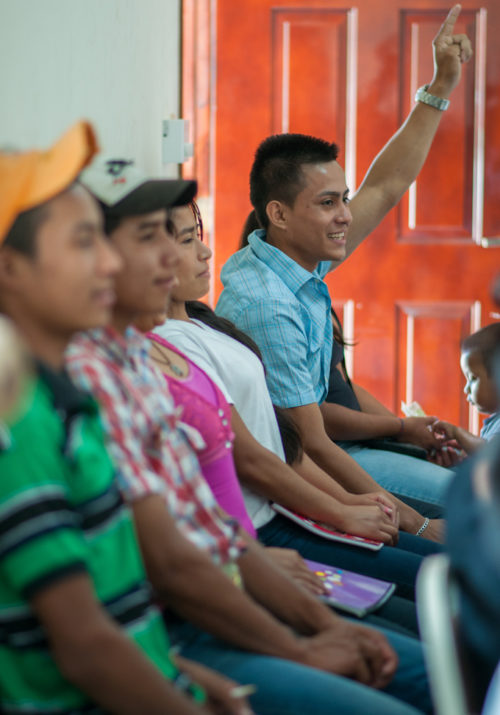“Finance drowns the real economy.”
It’s not every day that Pope Francis makes it into coffee-world news, but that quote from a talk on the environment and poverty was recently cited in Daily Coffee News to make the point that the real coffee economy is indeed farmers and millers and exporters and importers and roasters and consumers—a long chain of good, kind, well-intentioned collaborators who want to see every aspect of the coffee industry thrive.
So when the C market recently fell to, and then below, $1.00 a pound—a rate below the cost of producing a pound of coffee—it touched off a lot of conversations and questions. The C market responds to the financial markets (this documentary is a pretty informative watch), not to our “real economy,” and those of us in that chain have no control over it. But we can and have created some safety nets around it.
The coffee industry’s original buffering mechanism came in the form of certifications. All certifications offer a value to producers, and in some cases, and to degrees varying by the origin country, that value is a financial premium.
Fairtrade is one certification that always ensures a minimum price. The Fairtrade minimum is $1.40, plus $0.30 per pound for organic and $0.20 per pound for the Fairtrade premium (the premium is applied toward social programs for the producer, co-op, etc.). So, if you buy a Fairtrade Organic coffee, the minimum per-pound price is $1.90—no matter how low the C market is.
Are certifications perfect? No. Is it expensive and difficult for farmers and producers to meet certifications? Yes. But if you’re someone concerned about producers receiving a per-pound price that's higher than this September’s C market, one answer is to buy certified coffees.
Traceable Coffee
It’s worth noting that certifications designate traceability—even when a sure financial premium isn’t included—which can offer financial benefits to producers over the longterm. Traceability to a co-op, an association or a single farm provides opportunities for buyers and producers to build relationships that can be beneficial to both, year over year, can lead to conversations about premiums or—especially in times like these—can lead to special projects.
Project Coffees
Certifications can ensure minimum per-pound prices, but producers around the world need a bigger boost than that, for a host of very legitimate reasons. That’s where co-ops and associations can help, as can special projects. These can vary from offering farmers and producers tools for improving the effectiveness and efficiency of their coffee businesses, to helping them diversify their incomes, so they’re better able to weather a hit to their coffee profitability, whether from weather, disease or a low C market.
Here are three examples from our Offering List:
Guatemala Ixil Avelina Fairtrade Organic
In the mountains of the El Quiche region of Guatemala, the Maya Ixil (Ixil is pronounced E-sheel) coffee cooperative has worked with its members to help them achieve Organic and Fair Trade certifications; the extra money has given the producers greater financial stability and the ability to fund projects including a computer lab for the region and microloans for women (who often face gender barriers in coffee) to pursue other opportunities.
Additionally, Food 4 Farmers launched a pilot project with Maya Ixil to promote commercial beekeeping among coffee producers, which offers three-fold benefits: The bees have a beneficial impact on the coffee plants; the honey provides families with an additional source of income; and, in places where food scarcity is an incredibly serious problem, honey is an important nutritional supplement.
According to Food 4 Farmers, the co-op harvested its first honey in December 2015, and the beekeepers experienced a 23 percent increase in their incomes. Coffee producer Domingo de la Cruz Toma was part of the original group of beekeeping students, and he now he also runs an apiary school, teaching others the same skills. In July, InterAmerican was proud to donate $6,000 to Food 4 Farmers, to directly support Don Domingo in his role as an educator.
In Chiapas, Mexico, Food 4 Farmers is also working with the co-op that produces our Mexico CESMACH Fairtrade Organic, and today 82 co-op members are now building honey-based businesses, with plans to sell locally as well as to export.
Guatemala San José Poaquil HRNS
Hanns R. Neumann Stiftung (HRNS), a non-profit coffee foundation, brought what it calls its “entrepreneurial framework for change” to Guatemala’s Chimaltenango region in 2015, with the goal of empowering 1,000 coffee families to improve their quality of life. With the framework, which helps producers to assess their own situations, understand their risks and opportunities, and develop their own visions for improvement, HRNS offered support for the development of farmer groups; access to markets and essential services; guidance in business best practices; and trainings in methods for improving farm yields and adapting to the effects of climate change.
Three years later, producers in the area have, on average, increased their coffee yields by 56 percent and their incomes by 28 percent.
Coffee Kids, a program of HRNS, creates Rural Business Workshops for next-generation coffee producers as young as 13 years old. The workshops include trainings and discussions on agronomy, quality control, business practices and avenues for securing seed investment. The program today exists in Tanzania, Colombia and Trifinio (the tri-border area of Honduras, Guatemala and El Salvador).
Participants in the programs have since taken on entrepreneurial initiatives like opening bakeries and farm-supply stores—as side businesses to their coffee work—and introduced their communities to new processing methods. It’s been exciting to see the quality of their coffees increase each year—as well as their own excitement for their futures and their viable, long-term plans for success.
This year's crop comes from 33 young producers in the Trifinio program. We recently donated $20,000 to help expand the program, as well as to support HRNS climate-response initiatives. And, we're paying 10¢/lb. back to the producers for every pound we sell.
Some customers have asked if they can pay a premium on top of that—if there’s a way for the money to go to the producers. In this case the answer is yes. Please ask a trader for more details. •
—
Here are six Fairtrade Organic coffees that arrived in August/September. We'll share a more complete list in our Sept. 20 newsletter, though you can also choose Certified from the Our Offerings dropdown menu. (Want to receive the newsletter? Just email newsletter.iacus@nkg.coffee and specify which list you'd like to join: San Diego, Houston or Providence.)
Peru APROCCURMA SHB Fairtrade Organic (P6946 Annex 275 bag 69kg)
Peru La Florida Fairtrade Organic (P6649 NJ 119 bags 69kg)
Mexico CESMACH Fairtrade Organic (P6410 Annex 194 bags 69kg)
Colombia ASOPEP Fairtrade Organic (P6612 NJ 7 bags 70kg)
Ethiopia Yirgacheffe YCFCU G2 Fairtrade Organic (P6154 NJ 211 bags 60kg)


